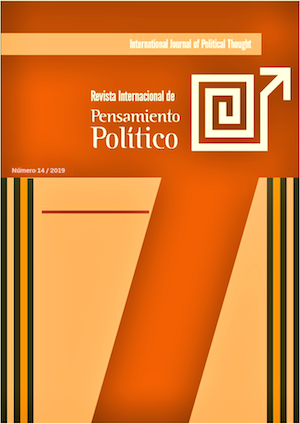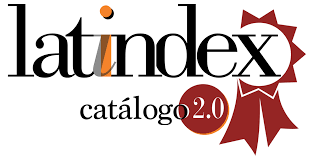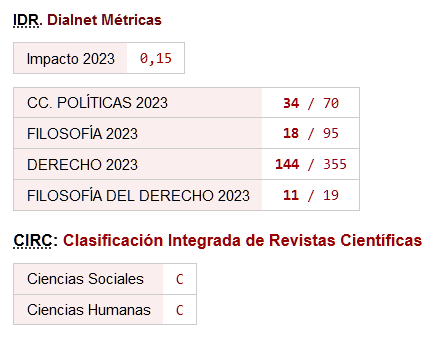The integration of Human Rights into the methodologies of development cooperation through the human-rights-based approach (hrba) and the do no harm approach
DOI:
https://doi.org/10.46661/revintpensampolit.4783Keywords:
International cooperation, Development, Logical Framework Approach, Human- Rights-Based Approach, Do no HarmAbstract
This article introduces specific tools in order to include the Human- Rights-Based Approach (HRBA) in the different levels of development planning.
The planning units closer to the citizens – the projects – need the HRBA to be taken into consideration for the decision making process, bottom up as well as from the top to bottom. In doing so, the Do no Harm approach, developed by Mary B. Anderson, is proposed to be incorporated in the project cycle managed by the Logical Framework Approach.
Downloads
References
Anderson, Mary B. (1999). Do No Harm: How Aid Can Support Peace Or War. Boulder: Lynne Rienner Publishers.
Anderson, Mary B. (2009). Acción sin daño: cómo la ayuda humanitaria puede apoyar la paz o la guerra. Tr. Jacques Mérat.
Facultad de Ciencias Humanas, Programa de Iniciativas Universitarias para la Paz y la ConvivenciaPIUPC. Bogotá: Universidad Nacional de Colombia.
EuropeAid Cooperation Office (2004): Aid Delivery Methods PCM. Project Approach Guidelines. Bruselas: European Commission.
Escobar, Arturo (2014). Sentipensar con la tierra: Nuevas lecturas sobre desarrollo, territorio y diferencia. Medellín: UNAULA.
Fernández Aller, Celia (coord.) et alia (2009). Marco teórico para la aplicación del enfoque basado en derechos humanos en la cooperación para el desarrollo. Madrid: Los Libros de la Catarata.
Gómez Galán, Manuel et alia (2013). El enfoque basado en derechos humanos en los programas y proyectos de cooperación. Madrid: CIDEAL.
NORAD (1999): The Logical Framework Approach (LFA). Handbook for objectiveoriented planning. 4th etition, Oslo: Norwegian Agency for Development Cooperation (NORAD).
OHCHR (2006). Preguntas frecuentes sobre el enfoque de derechos humanos en la cooperación para el desarrollo.
Ginebra: Oficina del Alto Comisionado de las Naciones Unidas para los Derechos Humanos (OHCHR).
Ortegón, Edgar et alia (2005). Metodología del marco lógico para la planificación, el seguimiento y la evaluación de proyectos y programas. Instituto Latinoamericano y del Caribe de Planificación Económica y Social (ILPES). Santiago de Chile: CEPAL.
UNFPA (2010). A Human Rights-Based Approach to Programming. Practical Information and Training Materials. UNFPA and Harvard School of Public Health, Nueva York.
Wallace, Marshall (2016). From Principle to Practice. A User’s Guide to Do No Harm. Cambridge: CDA Collaborative Learning Projects.
Welthungerhilfe (2009). Marco de orientación actuación sensible ante conflictos en la cooperación internacional. Bonn: Deutsche Welthungerhilfe.
Ziai, Aram. 2016. Development Discourse and Global History: From Colonialism to the Sustainable Development Goals. Londres: Routledge.
Downloads
Published
How to Cite
Issue
Section
License
Copyright (c) 2020 Creative Commons 4.0 Internacional

This work is licensed under a Creative Commons Attribution-NonCommercial-ShareAlike 4.0 International License.
Open access policy
Free and open access is allowed to any interested party to all the contents of the journal issues, free of charge, being able to print and transfer all the articles, with the only condition of specifying the source and authorship.
The journal: a) does not charge authorship costs for the processing of articles or for their submission, b) maintains copyright for authors without restrictions, c) facilitates authors to keep their publication rights without limitations.
The International Journal of Political Thought is an original work of the Laboratory of Political Ideas and Practices of the Pablo de Olavide University. All articles included in the Journal are original work of their respective authors. This Journal is freely offered to the scientific and academic community at no cost and releases the contents according to the license "Attribution-NonCommercial-ShareAlike 4.0 CC BY-NC-SA" of the Creative Commons project available in the following url: https://creativecommons.org/licenses/by-nc-sa/4.0/legalcode
If you wish to translate or compile any of the articles available here, please contact us at contacto












 ISSN: 1885-589X
ISSN: 1885-589X  Universidad Pablo de Olavide
Universidad Pablo de Olavide